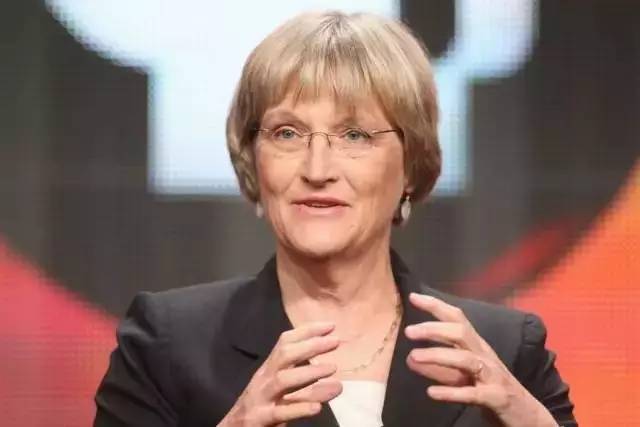Coffee time: the breadth of a person's life determines his excellence!
Follow the caf é (Wechat official account vdailycom) and found that Beautiful Cafe opened a small shop of its own.
The sentence "I am not the female president of Harvard, I am the president of Harvard" makes people remember that Drew Foster, the only female president of Harvard for more than 300 years.
Drew Foster: the current president of Harvard University. She is the first non-Harvard president since the founding of Harvard University in 1672 and the first female president among 28 presidents in Harvard's 373-year history. Foster graduated from Burmore Women's College in Pennsylvania in 1968 and received his master's and doctorate degrees from the University of Pennsylvania in 1971 and 1975, respectively, before working at Pennsylvania for 25 years, during which he was awarded a fellow of the American Academy of Arts. In January 2001, Foster took over as dean of Radcliffe College, which was merged into Harvard in 1999. Foster became president of Harvard University in October 2007.
The following is a speech given by the president at Harvard. She used her own experience to tell us why we have to go out and see the world.
Every year to go to a strange place-this is a request of myself, but also a plan.

This habit seems to have existed since childhood and has lasted until now. To this day, I go to a strange place with my children every year.
For me, it has become a tradition to travel by learning, and its significance lies in my own growth.
1. Travel allows us to really understand the world
The world is getting smaller and smaller, and we are dealing with strangers almost every day, getting familiar with all kinds of firsts.
Children live in a world that has become a family. Technology has blurred our nationality, made communication faster, and forced us to adapt to changing social environments.
Therefore, the future of children must be to work and live with people from different cultural backgrounds in various countries, so understanding the whole world has become a compulsory course for them.
Not long ago, the American Council on New Labor skills, made up of education and business leaders, listed "understanding the whole world" as the first of the four skills of 21 century talent.
There are so many contents in the world that we need to be familiar with and explore, which is definitely not limited to learning the languages of other countries. Language is only a tool, and what is more important than it is to learn unfamiliar culture and history, humanities and life in other countries.
So, the children and I taste the food of other countries; are familiar with traffic routes and public signs; appreciate different forms of architecture; experience different religious phenomena; experience getting along with strangers; adapt to all kinds of climate conditions; even the different smells in the air there.
When you go to a strange place, you will always hear children say that this is different from ours, and like this, there is always a comparison between good and bad places.
In this comparison, we opened our eyes wide, expanded our pores, and expanded each other's bosom.
When we see the world is bigger, we can be more tolerant and magnanimous. In fact, accepting each other's differences and respecting each other's differences has become the focus of "understanding the world".
2. How should we travel?
There are many ways to understand the world. Chatting with others through books and video materials can make us understand the world, but none of them is more important than immersive learning.
As the ancients said: it is better to read ten thousand books than to travel ten thousand miles, and it is better to travel ten thousand miles than to read countless people. And our consistent practice is to "read thousands of books before traveling ten thousand miles, read countless people during the journey, and think and review after traveling ten thousand miles."
Every time we go to a strange country, we have a week-long training with our children, including language, culture, local conditions and photography skills.
I was impressed by the fact that the children began to read relevant books a month before going to Italy, and in the training, they had a basic understanding of the Renaissance and shared the mystery of the Louvre and the legend of Napoleon with the children.
Simple language training allows children to make simple inquiries through customs, allowing them to find their own direction, while local bus administrative signs weaken their sense of strangeness.
After arriving in a strange country, the children began to verify that the information they had learned was consistent with everything in front of them, began to walk in the strange city with tools they were familiar with, and began to collide and communicate with local people and things. We began to need the help of the locals to complete the tasks we planned in advance.
In a strange city, you must integrate into their real society.
I still remember the ease with which they used subway buses in Munich, their busyness when they changed trains from Berlin to Cologne railway station, the handwriting in Maria Square that attracted foreigners to watch, the city mission between various fountains in Rome, and playing football with foreign children on Fesson's lawn.
Only by giving them full and free contact with this society, fully mobilizing their communication skills and strengthening teamwork in the process of communication, can they really improve themselves.
Children need to get in touch with local people, and more importantly, to live in a local way, to use their means of transportation, to see the museums they often visit, not just to stay there, but to stay there and enjoy them carefully.
Just as we spent three whole days in the Louvre, how free we are compared to the tour group's photography of the three treasures of the Louvre. At night, we played on the lawn in front of the Eiffel Tower, saw the lights of this magnificent iron building at night, walked on the lights of Paris at night and sat on the subway and then the youth hostel.
With excitement and tiredness, harvest and growth, we completed the journey, but it was not the end. We left there, but also brought back our thoughts on a strange country.
In addition to the memories left in our minds, we also have diaries, postcards, photos, and various types of group discussions, all of which make the harvest of one journey longer and heavier until we start again.
3. "know yourself and understand the world"
Every time you go to a strange city or country, the way you travel from learning and growing up can effectively help children build their own thinking patterns in their brains.
They know which organizations to ask for help in strange places, they know how to use their resources to accomplish tasks, and when a person is in an unfamiliar environment, his strengths and weaknesses are unusually clear. this undoubtedly gives us a chance to know ourselves.
Not only the children, but every time, when the children and I are faced with such strange shocks, I am also growing up, and I see myself more clearly every time.
When children grow up in the face of unfamiliar environment again and again, then, when they grow up to face a variety of strange environment will not make him feel afraid, because he already has a model of his own.
Many people will say, children are too young, let them go abroad at the age of seven or eight, what can they remember? Not to mention primary-age 's child. They don't know anything.
In fact, this is our misunderstanding of children. usually, we judge whether a person gets something or not, we will judge by his expression or his change.
But for a child who is growing up physically and mentally, their expressive ability is not enough for them to express their gains clearly and effectively to reflect their growth.
So the adults said arbitrarily that they were too young to be of any use to them, and that they would never remember. In fact, maybe for a four-or five-year-old child, he won't remember when he is a teenager, but it will definitely mean a lot to his growth in the following year.
Maybe we don't have to take them abroad, but we often go to different environments to see, hear, and feel the same and different, to adapt to different modes of transportation, and to muster up the courage to listen, see and feel in strange and noisy crowds. Itself is a kind of growth.
The breadth of a person's life determines his excellence.
A journey from an early age is the starting point for expanding the breadth of life. I like that sentence:
Life is not adestination,but a journey.
Life is not an end, but a journey.
Important Notice :
前街咖啡 FrontStreet Coffee has moved to new addredd:
FrontStreet Coffee Address: 315,Donghua East Road,GuangZhou
Tel:020 38364473
- Prev

Why does the coffee turn sour when it's cold?
Following Cafe (official Wechat account vdailycom) found that many friends will prepare a cup of coffee for themselves during work and study, but if they get busy or procrastinate, they will forget to finish the coffee while it is still hot. When you pick up the cup again, you will find that the coffee has turned sour! Is this the punishment for procrastination? coffee drinkers
- Next

Blue bottle Coffee Blue Bottle, a different existence from Starbucks Starbucks
Following Cafe Review (Wechat official account vdailycom) found that Beautiful Cafe has opened a small shop of its own, recently sweeping Blue Bottle, a boutique coffee chain in California and Japan, and recently continued to open new stores in San Francisco and Rachigi in Japan. Just after entering Japan, Blue bottle chose Qingchengbai River in Kangdong District of Tokyo, although this is a cheaper residential area in Xiachi.
Related
- Workers collapse! Lucky suspects that it will introduce freshly cut fruits?!
- 1-point subsidy recipients wear thousand-yuan watches?! Local response: For low-income households
- Can lightly roasted coffee beans be used to extract espresso? How finely should you grind high-quality coffee beans to make Italian latte?
- What is the difference between the world's top rose summer coffee and Yejia Shefi? What are the flavor characteristics of Yega Shefi coffee and Panama rose summer?
- The ceremony is full! Starbucks starts to cut the ribbon at a complimentary coffee station?!
- A whole Michelin meal?! Lucky launches the new "Small Butter Apple Crispy Latte"
- Three tips for adjusting espresso on rainy days! Quickly find the right water temperature, powder, and grinding ratio for espresso!
- How much hot water does it take to brew hanging ear coffee? How does it taste best? Can hot water from the water dispenser be used to make ear drip coffee?
- What grade does Jamaica Blue Mountain No. 1 coffee belong to and how to drink it better? What is the highest grade of Blue Mountain coffee for coffee aristocrats?
- What are the flavor characteristics of the world-famous coffee Blue Mountain No. 1 Golden Mantelin? What are the characteristics of deep-roasted bitter coffee?

